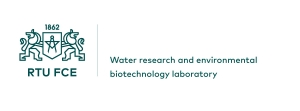International partners are presented with activities for attracting new specialists to the water technology sector.
In order to promote professional excellence in the water sector and attract new talents, practice programs are implemented in Latvia, raising awareness of the public through informational activities and promoting early interest in children and young people.
Representatives of Latvia shared their experience with partners in the international project “PoVe Water” (“Pilot Platform of Vocational Excellence Water”, No 612632-EPP-1-NL-EPPKA2-SSA-P).
“Practice at a large industrial company is an excellent way for college students to find out whether their chosen direction of study is the right choice of their education and careers. It also helps to acquire practical skills that are needed at work,” says Ivars Pēkainis, Professor of Olaine College of Technology of Riga Technical University (RTU). He says that all students of the college have two mandatory practices during their studies, depending on the program chosen — lasting for four to five months in total. During the practice, they acquire the skills that are very much required in building their professional career. For example, having passed a practice at a company involved in the preparation of drinking water, students learn how to prepare samples, test methods, learn how to determine compliance of drinking water to standards, explore regulatory enactments and quality assurance systems. Students have to apply their knowledge in practice and also to offer proposals for improving the company’s operations from an environmental point of view. In turn, the practice at a wastewater treatment plant provides knowledge of the types of wastewater to be treated, treatment plants and technological processes, treatment of active sludge, compliance of purified water with standards and regulatory enactments, usage of by-products, quality assurance, environmental protection requirements, etc.
Students of the college are accepted for practice at Latvia’s leading water management, pharmaceutical, food and beverage companies, construction chemicals, and other products manufacturing companies.
Students can also acquire the skills that are vital to the labor market at modern-equipped laboratories and classrooms – in autumn 2020, the college modernized its study environment by setting up new laboratories, including the Water Treatment and Processing Training Laboratory.
RTU Olaine College of Technology is a state-accredited professional higher education institution with a professional secondary school. It offers modern and competitive higher and professional secondary vocational education in the chemical, pharmaceutical, biotechnological, mechanical engineering, food, and environmental sectors,” says I. Pēkainis when presenting the educational establishment to the foreign partners.
Whereas the leading researcher of the RTU Water Research and Environmental Biotechnology Laboratory, the Executive Director of the Latvian Water and Wastewater Works Association (LŪKA), Sandis Dejus, presented the “U Vitamin” initiative. It was organized by LŪKA, in cooperation with RTU and the Innocent Café company, to promote responsible use of water resources, ensure its free access in any public place in Latvia and break myths about the use of tap water.
“In Latvia, around 75% of people use tap water, but there are still many who do not trust it, although mostly the quality of water in bottles is the same as in the tap. Research shows that water from underground drills has a low degree of mineralization. So, it is not just water running from the tap in Latvia, which is as good as bottled water, but even mineral water. We don’t have gold, uranium, oil, or diamonds, but we have clean and safe drinking water and we have to use it,” says S.Dejus.
In order to promote responsible use of water resources, “U Vitamin” also organizes a variety of activities for children and young people. Children are told, in an interesting and understandable way, such as animations, about the importance of water in human life, the life cycle of water, explaining consumption with interesting facts and comparisons, undermining myths about tap water, and explaining what water engineers are doing. At the same time, this industry is trying to make children more interested in connecting their lives to the water sector, where young and knowledgeable specialists are urgently needed. Statistics show that the average age of employees in Latvia is the highest in the water supply and wastewater management sector. “If we don’t want to get into a situation when there is no water in the tap, we have to attract new specialists. In the eyes of young people, this sector is not prestigious, it is not as enticing as IT, but it is just a myth that needs to be tackled,” emphasizes S.Dejus. “A water engineer is a unique person who knows physics, chemistry, biology, economics, construction, and rights issues. “They’re like emulators, like Chuck Norris,” he compares.





